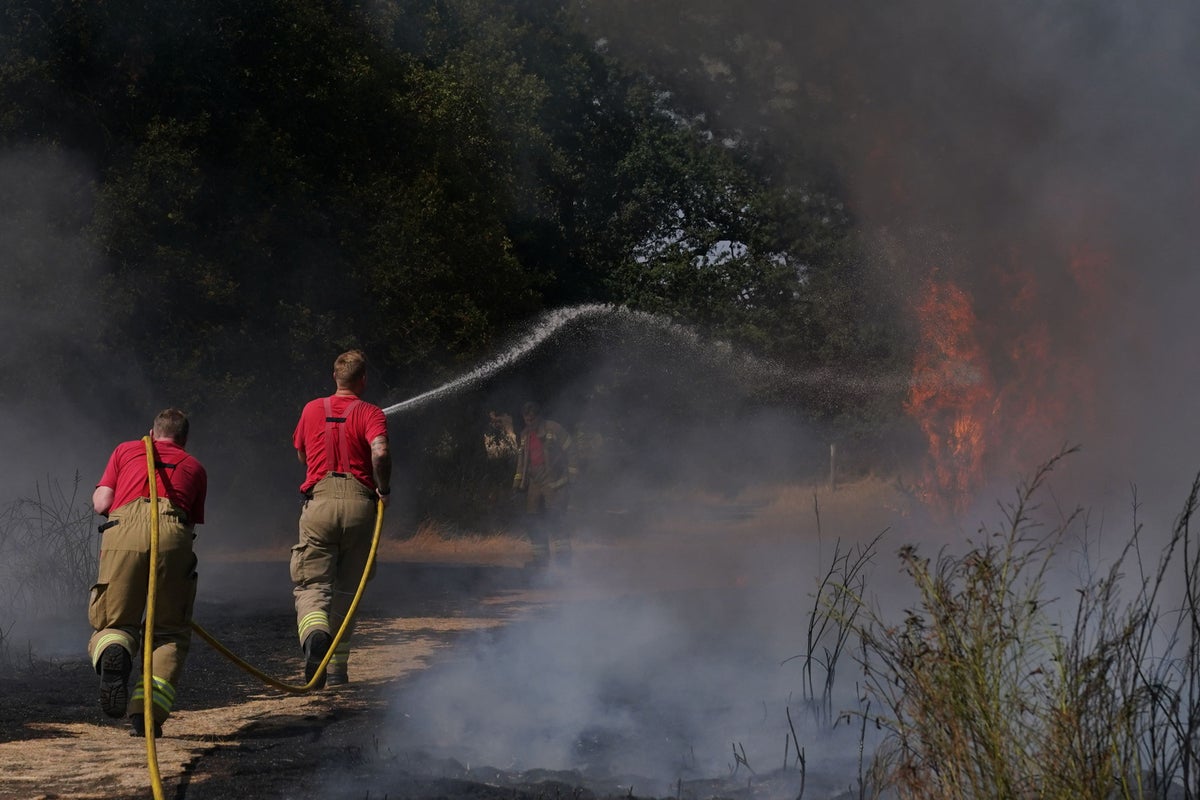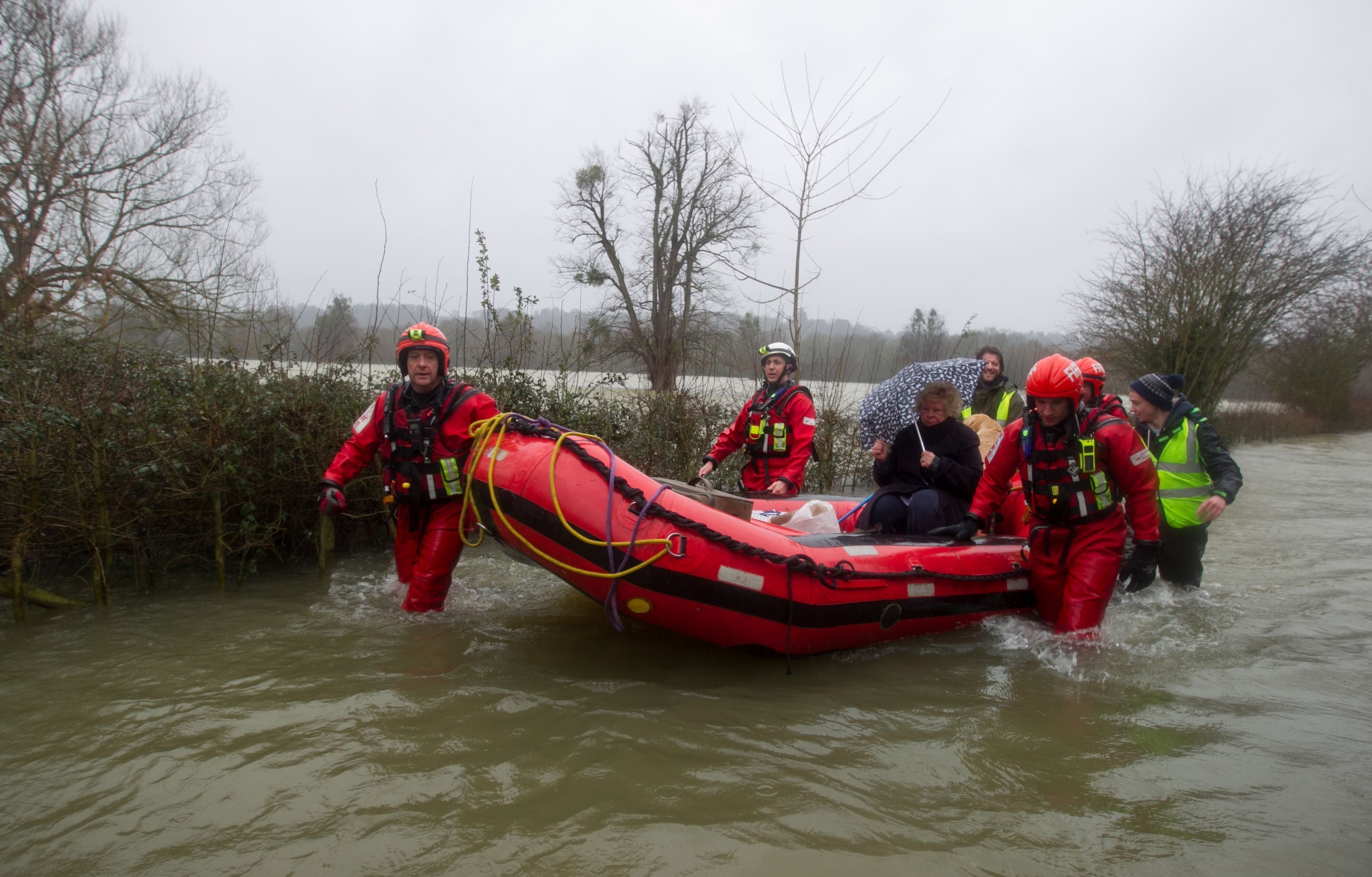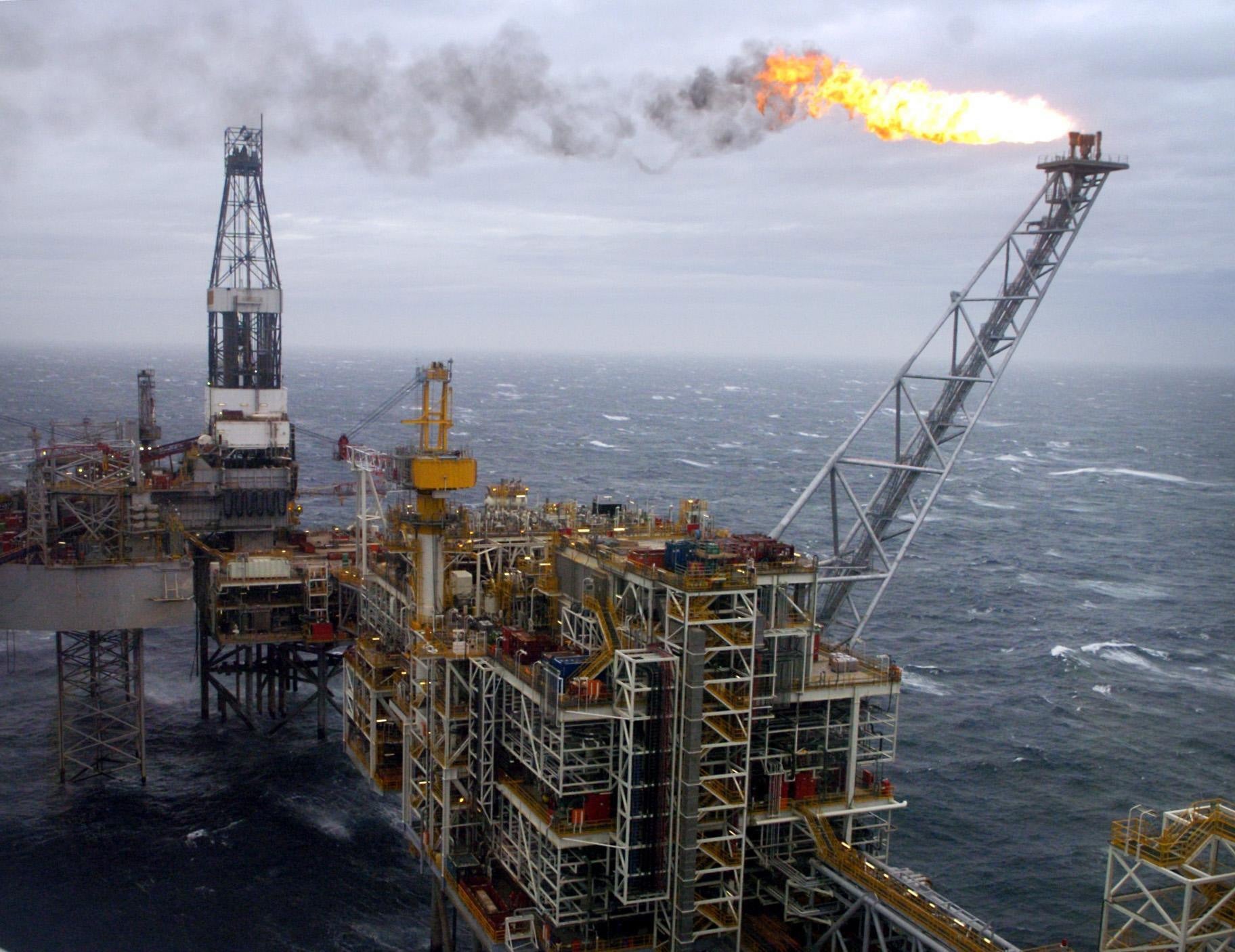
The Fire Brigades Union is calling on ministers to tax polluters as services struggle to respond to the growing impacts of climate change, such as wildfires and floods.
The union, which represents more than 30,000 fire responders in the UK, has joined the Polluters Pay Pact – a Greenpeace initiative that brings together climate-hit communities, concerned citizens, first responders and political leaders.
The pact urges governments around the world to make high-emitting firms pay their fair share for the climate damage caused.
In the UK, the Energy Profits Levy was implemented in May 2022 in response to skyrocketing profits made by oil and gas firms amid a sharp rise in energy prices.
After being increased in the most recent UK Government budget, oil and gas producers are currently paying a headline tax rate of 78%.
The levy will end when prices fall to or below a set price floor, or in March 2030.

However, the Fire Brigades Union warned that a decade of funding cuts has left the fire and rescue service fragmented, overstretched and chronically underfunded.
According to the union’s analysis of official figures, the service has lost one in five firefighting posts since 2010 – equivalent to 12,000 full-time roles – while 82 fire stations and 17 control rooms have been closed.
It comes as the number of incidents fire services responds to has risen by 20% since 2014, according to a separate National Fire Chiefs Council analysis of Government data.
The analysis also found response times are now the slowest on record, with the time it takes for a first appliance to reach a fire having risen by three minutes since the 1990s.
Steve Wright, general secretary of the Fire Brigades Union, said: “While oil and gas giants profit from pollution, firefighters are left to deal with the sharp end of the climate crisis – and all too often without the resources they need to protect lives.
“It’s frontline workers and vulnerable communities paying the price.

“Governments must get serious: make polluters pay, fund public services, and back a transition to clean, green energy.
“The UK and global leaders must be braver and bolder in holding polluters to account, starting with signing up to the principles set out in the Polluters Pay Pact.”
In July 2022, during a record heatwave, the London Fire Brigade (LFB) reported its busiest day since the Second World War, but dozens of fire engines sat idle because there were not enough firefighters to crew them.
And in April this year, the Global Wildfire Information System found that wildfires in the UK had burnt an area larger than the overall annual record for the last decade, while drought has been declared for the North West and Yorkshire.
Greenpeace UK climate campaigner Maja Darlington said: “As more heatwaves, wildfires and floods hit the UK and countries around the world, we need well-funded, well-staffed emergency services to protect homes, businesses and lives.
“And if ministers are looking for revenue, they must tax the massive profits Big Oil is still making from cranking up the planet’s thermostat and devastating the lives of millions.”
A UK Government spokesperson said: “The Energy Profits Levy already ensures the oil and gas sector contributes towards our energy transition while taking a responsible approach to tax which recognises the role the sector will have in the energy mix for decades to come.”
Home of ‘Devil’s Punch bowl’ in Surrey declared national nature reserve
Days of empire show Britons can cope with soaring temperatures, says ex-minister
Tree planting hits 20-year high in England but drops in Scotland, figures show
Number of hen harriers killed or missing at new high, RSPB warns
More Mediterranean and drought planting features in garden show as heatwave hits
Record number of hen harriers killed or missing in the past five years, RSPB warns







